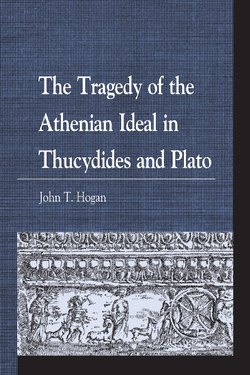Читать книгу The Tragedy of the Athenian Ideal in Thucydides and Plato - John T. Hogan - Страница 8
На сайте Литреса книга снята с продажи.
ОглавлениеA Note on the Use of Ancient Greek
Wherever an ancient author is quoted, the quotation is printed in polytonic Greek with accents and breathing marks. For Greek words that are not quoted and that denote difficult-to-translate concepts, such as polis (πόλις, city or city-state), kinesis (κίνησις, movement), and polupragmosune (πολυπραγμοσύνη, meddlesomeness), the transliterated word has been italicized. The first time the word appears here I have included the original Greek, generally in the nominative case but not always, as when it is taken directly from an important quotation. After that the Greek words are printed in transliterated Greek. When such words are actually taken from a section of an ancient Greek text, I have printed them in Greek. Translations of Plato and most other authors are mine except where otherwise noted. Translations of Thucydides are those of Richard Crawley, though on occasion I have modified them and noted that. ἀξίωσις (transliterated axiosis) is a special case as the word is rare but of particular importance for Thucydides. Its meaning is valuation, estimation, or act of assigning value, as we shall see.
I have generally included references to Greek texts, for example, Plato, Thucydides, Aristotle, in the text rather than in footnotes, though there are exceptions to this. The references follow standard numbering systems such as the Stephanus page number in Plato, Bekker numbering for Aristotle, and the Oxford Classical Text book, chapter, and section identification elsewhere. References to Thucydides and Plato are generally to the Oxford Classical Text editions as noted in the bibliography.
I do not use a line over a vowel to indicate that the vowel is long in transliterated Greek.
